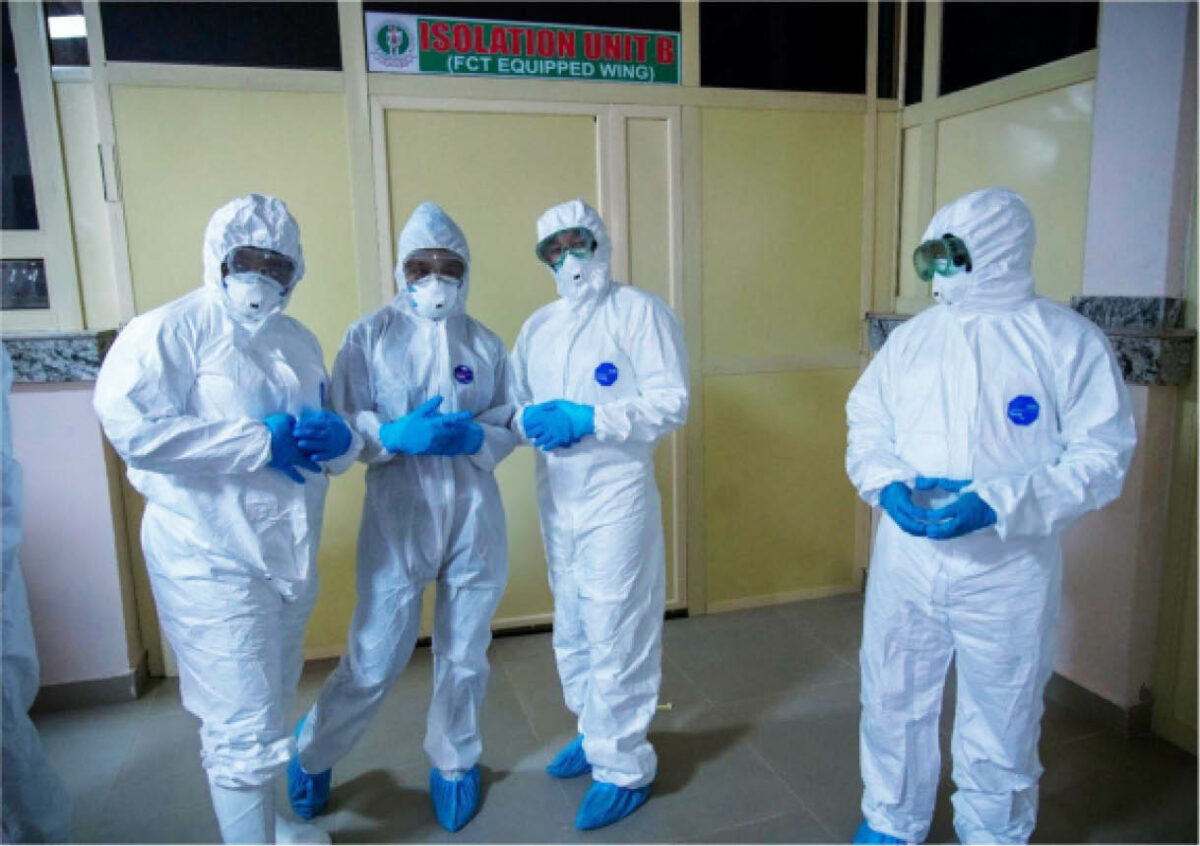The Federal Government on Nigeria, on Thursday, said that the nation has entered a second wave of the novel COVID-19 infections.
It warned that there was the risk of not just losing the gains from the hard work of the last nine months but also not losing the lives of the citizens.
The acting Chairman of the Presidential Task Force (PTF) on COVID-19 and Minister of Aviation, Hadi Sirika, said this in Abuja at the joint national briefing of the task force.
Sirika was standing in for the the Secretary to the Government of the Federation (SGF), Boss Mustapha, who on Sunday went into self isolation, after some members of his household tested positive for the virus, though they were asymptomatic.
Mustapha and his wife, who are together on the self isolation, are not infected.
According to Sirika, the events and statistics of the last two weeks within and outside Nigeria have been very mixed, with the cheering news of the COVID-19 Vaccine, on one hand, while on the other hand, there has been spikes in number of infections at home and abroad.
“The real threat is upon humanity and the progress made in the global health sector in the last five decades or more.
“In Nigeria, the indication is that we have entered a second wave of infections and we stand the risk of not just losing the gains from the hard work of the last nine months but also not losing the precious lives of our citizens.
“The PTF believes that if we do the right things, adhere to the Non-Pharmaceutical Interventions (NPIs) and step up our testing and detection, loss of lives will be minimized and the rising curve will begin to flatten out,” Sirika said.
He said that the nation’s cumulative numbers in the last weeks of 49-51 were: week 49: 1,843; week 50: 3,918; week 51 (Mon-Wed): 1,889.
He also listed the global situation in the last three days as over 74 million mark, now at 74,516,681; USA crossed the 17 million mark; while Africa Region has crossed the 1.6M cases mark.
He said, “Global CFR declined to 2.2%, while the WHO Africa region’s CFR remains at 2.2 %; USA continues to record high daily case incidence of over 248,686 cases daily; and on the WHO Africa region, Nigeria ranks 5th for both highest cumulative cases and highest cumulative deaths.”
Sirika said that last Tuesday, the PTF held the end of term technical session where it assessed the progress made and the present dangers that confront the nation.
He said that the report of the PTF will be submitted to the President on Tuesday, 22 December, 2020.
“Current realities, however, point to the fact that the course of further opening up of the economy may have to be reviewed,” he warned.
He said that the festive season is here and everyone need to remain conscious of the fact that large gathering events will take place.
“It is our strong advice that all non-essential trips be cancelled outrightly.
“We also urge citizens to avoid large gathering events,” he added.
‘Virus spread will harm economy, fragile health’
The Director General, National Centre for Disease Control (NCDC), Dr. Chikwe Ihekweazu, has warned that the continued spread of COVID-19 will increase the pressure on the nation’s fragile health systems and threatens Nigeria’s economy.
According to him, the risk of spread of the virus that causes COVID-19 is higher in confined spaces where there is close contact, less than two metres, with an infected, but possibly asymptomatic person.
He also said that all physical meetings should be restricted and instead opt for virtual meetings, whenever possible.
Cases now surpassing first wave – Osinbajo, govs
Meanwhile, the National Economic Council (NEC) has raised the alarm over the rising cases of COVID-19 infectious disease in Nigeria, saying: “The current trends are now approaching or surpassing the levels reached during the lockdown imposed at the height of the pandemic earlier in the year.”
NEC said; “the country is now experiencing a huge resurgence of COVID-19 patients needing intensive care and the existing health facilities are fast becoming overwhelmed.”
It said the trends showed that younger people who might recover were getting infected but passed the virus to older and more vulnerable people, especially people with pre-existing health conditions, who developed serious illnesses and might lose their lives in the process.
The monthly meeting presided over by Vice President Yemi Osinbajo, in a communiqué issued Thursday, agreed to act on the strict enforcement of measures to contain the spread of the disease across the country.
The council enlarged the membership of its Ad-Hoc Committee on COVID-19 and mandated it to urgently come up with additional measures to deal with the spike in cases,
The vice president asked the committee to urgently develop innovative and new measures to curtail the spread of the disease.
NEC re-emphasised the importance of adhering to safety measures as the country approached the end of the year, warning against social gatherings associated with the holiday season, particularly activities or behaviour that might aggravate the situation and necessitated another lockdown.
Cleric warns against lockdown
However, the Imam, University of Abuja, Prof. Taofiq Adesina Azeez, has cautioned the federal government against lockdown over the second wave of the COVID-19 pandemic in the country.
He, however, urged the government to enforce the use of face masks and other measures aimed at reducing the spread of the virus.

 Join Daily Trust WhatsApp Community For Quick Access To News and Happenings Around You.
Join Daily Trust WhatsApp Community For Quick Access To News and Happenings Around You.


